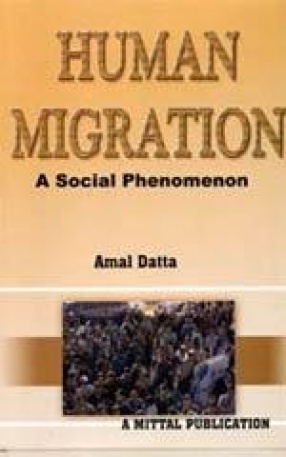Human migration is one of the most important aspects of social science and recognised as an essential area of contemporary research in population studies. Migration is entirely a social process. It has an immense importance in India. In case of North Bengal region, where the migration situation is much more intricate. Because, the region has already achieved and is still achieving significant experience of steady and continuous flow of migrants from different places of India as well as neighbouring border countries like Nepal, Bangladesh, and also Bhutan. Moreover, much of the socio-political articulation in North Bengal including Sikkim and North-East India can be understood in the context of migration situation in these regions. The book is the product of comprehensive study which offers an empirical analysis of the role and importance of social factors (aspects) in human voluntary migration. The main contention of the study is that the effects of social factors has been ubiquitous in every steps of voluntary migration. And, voluntary migration is more a social phenomenon rather than an economic phenomenon. No such in-depth and empirical study emphasizing greater and decisive role of social factors in migration and adaptation has been taken so far in migration studies. Obviously, this book will be a very useful source of reference of students, teachers and researchers of social sciences. Moreover social scientists, town planners, policy maker and programme planners may of special interests too.
Global Encyclopaedia of the Political Science (In 5 Volumes)
The primary object of this ...
$749.70
$833.00





There are no reviews yet.